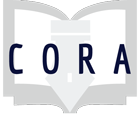This algorithmic literacy workshop puts a new spin on media literacy by moving beyond fake news to examine the algorithms that shape our online experiences and how we encounter information in our everyday lives.
Assignments
Did fake news affect the presidential election? Do websites purposely publish misleading stories? In this workshop, learn how to evaluate the trustworthiness of news stories while responsibly sharing reliable information.
A one-shot or seminar class on fake news tied to source evaluation. Examination of the factors at play in the creation of misinformation; insight into how to select sources; tools and strategies for evalutating content of stories, authors, and news outlets.
What is “fake news” anyway? Are we living in a post-truth world? These University of Michigan course materials will provide opportunities to discuss and analyze news production, consumption and evaluation. Students will develop the critical thinking skills necessary to be an informed citizen; understand how their worldview affects their interpretation of the news; and create a personal strategy for fact-checking and evaluating the news.
In this workshop, students learn about the driving forces behind fake news, reflect on how our opinions impact the way we evaluate information, and discuss and practice using criteria for evaluating news. The workshop includes a brief presentation on fake news and cognitive biases, reflection prompts for students to respond to, and an activity in which students work in groups to evaluate different news articles on a common topic.
In an effort to provide students with an open space to learn about and discuss recent national concerns over “fake news,” the library offered four sessions of the workshop “Keepin’ It Real: Tips & Strategies for Evaluating Fake News” during a campus-wide Inauguration Teach-In on Friday, January 20, 2017. During this session, students had the opportunity to talk about how misleading news sources (encompassing misinformation, disinformation, click-bait, propaganda, etc.) have affected their views on civil discourse, specifically relating to the recent U.S. presidential election.
Students will be expected to find evidence to investigate a pseudoscientific claim or conspiracy theory. For their graded assignment, they will be submitting a two-page paper to their Chemistry professor (the lead professor for this class in which I’m embedding). In their paper, they make a case that either supports the claim or rejects it. They will be expected to use both library and credible online sources for support.

